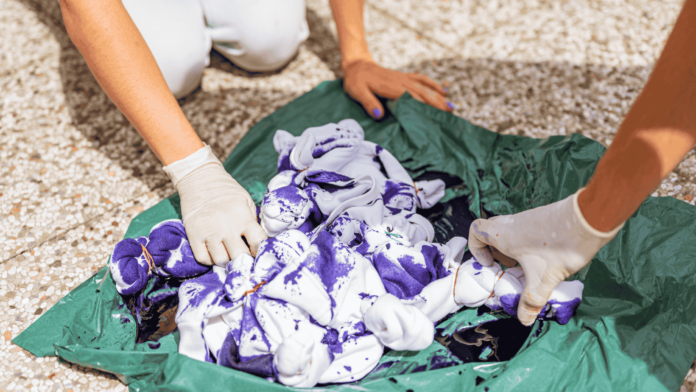Steeped in tradition and cultural heritage, Nigeria boasts a thriving artisanal craft scene that reflects the creativity of its diverse communities. From vibrant textiles and intricate beadwork to hand-carved sculptures and unique leather goods, the country offers a treasure trove of handcrafted items. Whether you’re a traveler seeking authentic souvenirs or a collector looking for one-of-a-kind pieces, Nigeria’s artisanal crafts provide a meaningful way to connect with its rich history and culture. Explore this guide to discover the best places to find these exceptional works of art.
1. Abeokuta: Adire Fabric and Tie-Dye Art
Abeokuta, the capital of Ogun State, is famous for its Adire fabric—a traditional hand-dyed textile made using resist-dyeing techniques. The Itoku Market is a hub for this craft, offering a variety of vibrant patterns and colors.
What to Find:
- Adire fabrics, available as wraps, dresses, or home decor.
- Live demonstrations of the tie-dye process.
Why Visit: Purchasing directly from artisans ensures authenticity while supporting local craftsmen.
2. Benin City: Bronze Casting and Sculptures
Benin City, in Edo State, is renowned for its ancient bronze casting tradition. The city’s craftsmen create intricate statues, plaques, and artifacts, many of which have cultural and historical significance.
What to Find:
- Bronze statues and plaques depicting historical scenes.
- Unique jewelry and decorative items.
Why Visit: Explore Igun Street, a UNESCO World Heritage Site, to witness artisans at work and learn about the history of Benin bronze casting.
3. Kano: Traditional Leather Goods
Kano, in northern Nigeria, is famous for its leatherwork. The ancient dye pits in the city’s Kofar Mata area have been in operation for over 500 years and are a testament to the region’s rich heritage in leather craftsmanship.
What to Find:
- Handcrafted leather bags, shoes, and wallets.
- Traditional leather cushions and mats.
Why Visit: The Kano leather industry combines traditional techniques with contemporary designs, offering unique items for every taste.
4. Osogbo: Batik and Beadwork
Osogbo, the capital of Osun State, is a cultural hub known for its artistic community. The city is particularly famous for its batik fabric and intricate beadwork.
What to Find:
- Handcrafted batik textiles with vibrant designs.
- Beaded jewelry, traditional crowns, and accessories.
Why Visit: Osogbo is home to the annual Osun-Osogbo Festival, where you can experience the city’s rich art and culture firsthand.
Similar Post: DIY Crafting Workshops Happening in Abuja
5. Bida: Glass Beads and Bangles
Bida, in Niger State, is celebrated for its glass bead-making tradition. The city’s artisans create colorful beads that are used for jewelry, decor, and ceremonial attire.
What to Find:
- Handmade glass beads and necklaces.
- Decorative items like beaded curtains and ornaments.
Why Visit: Witness the painstaking process of crafting each bead by hand and take home a piece of this intricate artistry.
6. Calabar: Raffia and Bamboo Crafts
Calabar, in Cross River State, is known for its raffia and bamboo craftsmanship. Artisans here create functional and decorative items that highlight the natural beauty of these materials.
What to Find:
- Raffia baskets, hats, and mats.
- Bamboo furniture and decor.
Why Visit: The local markets are filled with unique, eco-friendly items perfect for adding a rustic touch to any space.
7. Lagos: Contemporary and Traditional Crafts
As Nigeria’s commercial capital, Lagos is a melting pot of traditional and contemporary art. Markets and galleries across the city showcase crafts from every corner of the country.
What to Find:
- A mix of traditional crafts and modern art pieces.
- Unique souvenirs, including pottery, textiles, and jewelry.
Why Visit: Lagos hosts a vibrant arts scene, with places like the Lekki Arts and Crafts Market offering an extensive selection of handcrafted goods.
Tips for Buying Artisanal Crafts in Nigeria
- Support Local Artisans: Purchase directly from markets or workshops to ensure authenticity and support the artists.
- Negotiate Prices: Bargaining is common in Nigerian markets, so don’t hesitate to negotiate.
- Learn the Craft’s Story: Many items have cultural or historical significance, and understanding their background adds value to your purchase.
- Pack with Care: Fragile items like ceramics or glass beads should be carefully packed for safe transport.
Conclusion
Nigeria’s artisanal crafts are a testament to the country’s rich cultural diversity and artistic heritage. From the colorful Adire fabrics of Abeokuta to the intricate bronze works of Benin City, each piece tells a story of tradition, skill, and creativity. Whether you’re exploring local markets or visiting artisan workshops, these crafts offer a meaningful connection to Nigeria’s vibrant culture. Make time to explore these destinations and discover treasures that will last a lifetime.




